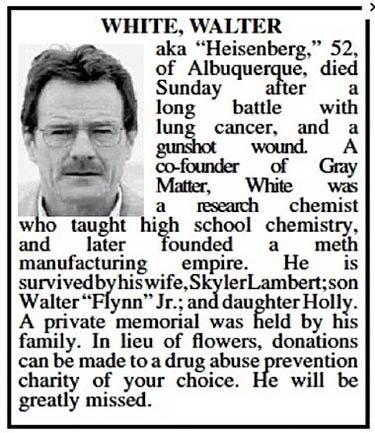
Photo by Tom Medwell.
I’m a daily reader of the New York Times obituaries. There, I said it. And yes, this little habit of mine has been going on for decades. Needless to say, in that time I’ve witnessed a surfeit of notable crossings into the unknown. Simone de Beauvoir. Picasso. Katherine Hepburn. Anwar Sadat. Indira Gandhi. Mercedes Sosa. And, in the process, I’ve gained an education in the fine art of biography-after-the-fact.
For example, I’m an admirer of Fred Astaire — and of Fred Astaire’s NYT obit. Placing him in the era of America’s immigration rush, vaudeville, and the rise of Hollywood talkies, it covers his working-class upbringing, attendance at dance school, how he stayed so lithe, film successes, marriages, praise from colleagues, and why he put away his tap shoes. The essay is capped off with his philosophy of hoofing: “The search for what you want is like tracking something that doesn’t want to be tracked.” The obit itself is as elegant as Fred Astaire in a tuxedo skipping across the linoleum.
Which brings us to the obituary as literary form. While the death notice began as a titillating little gossip crumb in early-1700s England, Melanie Johnson’s The Dead Beat: Lost Souls, Lucky Stiffs, and the Perverse Pleasures of Obituaries informs us that we have arrived at the Golden Age of the Obituary. In addition, says Johnson, while the earliest obit writers perceived the job as the lowest-entry-rung of a hopefully rising journalistic career, today’s writers accomplish the mythic feat of blending “empathy and detachment; sensitivity and bluntness.”
But, we might ask, from where springs this mad dash toward minimalism? True, invention of the six-word narrative, short-short fiction, and “smoke long” (a tale whose enjoyment lasts the length of a cigarette) parallels the fascination. The cell phone, whose text-messaging lines allow but forty characters, could be a culprit. In this era of flash-technologies, life has become too hurried and fragmented for lolling about for days on end with Sense and Sensibility. Whatever the sociology of this literary development, in a mere 100-500 words, the obituary may have replaced the biography, using the most telling incidents of a lifetime to reveal the blistering whole of a person’s story; perhaps, we might consider, its practitioners have become today’s bards.
Nonetheless, in not-so-Golden-Age circles, to be an aficionada, as I am, is still not an accepted social status. If ever my little secret happens to come up in conversation, the incredulous demand to know why, and I’m never able to formulate an explanation that saves me from assignment to the “Goth” category. That is… until my own friends’ life stories began to appear like confetti in a ticker tape parade in those same revered pages – and in the San Francisco Chronicle, Santa Fe New Mexican, Washington Post, Anderson Valley Advertiser, By What Authority, Orion, La Jornada, CounterPunch…
Feminists, writers, filmmakers, anti-nuclear activists, farmers, historians, ecologists, bioregional activists, folk singers, yoga teachers, technology critics, philosophers, they – and I could see that death was no longer going to be something that happened occasionally and to someone else. It was the flame-eyed, snake-coifed Gorgon in the room – right here and right now.
He drew me into the swirl of mad farmers, musicians, historians, sheep herders, and political philosophers who were demanding that the state of Vermont secede from the United States of America.
The passing that threw me over was that of John Ross. The news came via an email announcement from his colleagues in San Francisco, reporting that the doctors had done all they could to prolong his time and, by choice, he had left his room in a Mexico City hotel for Lake Patzcuaro where he had lived on and off for fifty years. It wasn’t that we hadn’t had sufficient notice of the possibility, yet I sat in my chair for some time, as stunned as a bird slamming into a glass window. Red-diaper baby, the first journalist to venture into the Chiapas selva to report on the Zapatistas, Human Shield against the war in Iraq, author of books documenting left-wing history in the US, jazz poet: Ross was a bona fide character. Toothless and almost blind from conflict generated during his various political exploits, he could guzzle cheap wine like nobody’s business and recite poetry into the wee hours. He was obnoxious as all get-out, and he had liver cancer.
Ross took the rail-runner from Albuquerque to Santa Fe to visit me while on a book tour for his monstrous tribute to Mexico City, El Monstruo. His mission was to swig espresso, buy a really cool cane to bolster his failing leg, and (needless to say) talk politics. I was on the verge of moving to Bolivia, and he reached into the suitcases of memory to regale me with his encounters with now-President Evo Morales. Although neither of us said a word, when he mounted the aluminum steps for the return journey, we knew it would be the last time we would be together. I clung to the vision of this brave warrior as he hobbled to grab the overhead bar and plop his wiry body into a seat.
The news of his passing in January 2011 struck me in a way that even my own mother’s death did not. I could not imagine — or accept — a world without John Ross.
Maybe I was still reeling from Ross’ passing when Richard Grossman’s metastatic melanoma flared up. Grossman was what one might call a “sweetheart with an edge.” Caring in friendship, he also boasted something of an uncouth penchant for sticking his face into stretch limousines and loudly decreeing the shame of the owners in a world of gross inequity. He was best known for his contribution to progressive thought for the “legal” mechanism corporations rely on to perpetrate injustice and exploitation: they enjoy the same rights as individual people do. He had also fought for workers’ rights in the context of the environmental movement, jumpstarted organizations to push citizen rights, designed a school for teaching democracy, and spearheaded court cases to challenge the “rights” of corporations. Grossman and I had had a habit of talking on the phone for hours each week – Río Grande Valley to the Catskills – about history and politics. He had a fondness for growing opium poppies, and since cultivating such a crop was illegal in the US (and, incidentally, since I had written a book about the global heroin trade), he reveled in referring to his delicate blossoms with code words and a tone of devilish irony.

Two weeks before he died, in November of 2011, Grossman was talking up a storm about his new lawsuit in Pennsylvania; he had just done an interview for Corporate Crime Reporter proposing a law to strip away 500 years of Constitutional protections for corporations – and out of the blue he offered financial help to salve my housing problems in Bolivia. His last email to me capped off with: “Be Good, Be Bad, Be Historical.” And then the calls and letters stopped…
Rebekah Azen’s suicide hit like the clang of an alarm clock: “SAD NEWS FROM SANTA FE” announced the note from a friend-in-common. Upon arriving in New Mexico from Wisconsin, Azen had sought roots with a Native clan at San Felipe Pueblo that she called her “family,” and by the time I met her in the 1990s, she was hot on the trail of the visionary philosophies of what she called the two Henrys: Thoreau and George. Her particular outrage had to do with theft of land and home, drawing parallels between the colonization of indigenous peoples and the housing hardships of the working class – and she wrote abundantly on the topic in Green Fire Times. Of late, she had been suffering from an ill-explained illness, although her diligent work in the anti-electromagnetic radiation movement, and her constant complaints about her librarian job at the Santa Fe New Mexican where she was daily barraged by Wi-Fi, gave the sense that she had electro-hypersensitivity, otherwise known as microwave sickness. One afternoon in October of 2011, probably very slowly as Azen always moved at the pace of a snail in a Buddhist retreat, she walked into her beloved, juniper-spotted Tesuque desert and blasted her skull to bits with a bullet.
I couldn’t get over the courage that such an act took. Maybe it was desperation: she hadn’t been able to sleep for months. But being that she was an ally with whom I had navigated the labyrinthine passageways of philosophy and literature, not to mention Cochiti Pueblo’s wind-sculpted Tent Rocks — and who had come to me in my moment of need – I knew her spirit: that exit was the handy work of one intrepid voyager.
How illuminated or bewildered, how healed or how wounded, the frame reveals that each person is in reality a hero.
Then Thomas Naylor surprised us with a stroke, and on December 12, 2012, the family chose to remove the life-support technologies. That decision would have pleased Thomas: he was a raving critic of mass technologies and of the authoritarian institutions they reflected, facilitated, and propagated. After a successful career as an economics/computer science professor at Duke University, he moved to Vermont and authored a series of books on decentralism, including Downsizing the USA.
I met him in 2008. I had written an essay for CounterPunch entitled “Techno-Fascism,” and it turned out that Naylor had been using that same term. He sent me a packet containing a four-page hand-scrawled letter, a pile of articles, and a book he had written called Secession. And so it came to be that Naylor, brimming with Mississippi gentility and rousing political arguments, drew me into the swirl of mad farmers, musicians, historians, sheep herders, and political philosophers who were demanding that the state of Vermont secede from the United States of America.
His activism was inflamed by old-fashioned ethical outrage, and he waxed emotional when it came to the immorality of remaining within a US that was ruining the planet with its technologies and killing people with its imperialist wars. Right before his death, he was organizing an assembly of the small nations of the world to discuss their role in addressing the injustices caused by imperial nations and gain worldwide backing for secession movements, to be held in Liechtenstein in 2013. But then, unexpectedly, he was gone.

One angle on this incessant bombardment of obituaries is that today’s culprits to the final demise tend not so much toward what in my grandmother’s day was called “natural causes” as they do toward the impacts of the dirty chemicals and abrasive technologies over-running planet Earth. Pesticides. Nuclear power plant leakages. Preservatives. Dioxin-infused tampons. Cell-tower and satellite emissions of electromagnetic radiation. Carbon monoxide. Asbestos. Chemical hormones. Heavy metals. I do not feel just the wells of grief at these deaths; I feel unnerved and discombobulated by the untimely and unnecessary theft of lives — and wisdom — from our midst.
And there is something else. Now, after reading so many of my own friends’ life endeavors in encapsulated form, I finally understand why I have relished the NYT obituaries all these years. As we know, the end of an individual’s life bold-facedly reveals that person’s participation in an era. Yet too, and perhaps more notably for the longings of the human psyche, it offers up the wide view we all seek so that we can make meaning of life. And more importantly still, it proposes a frame. When the dreaded skeleton-laden-with-roses-and-gauze snatches away a comrade, we are able to see with utter clarity what that person did with this life, what her challenges and burdens were, how he mounted them, what she did with ease, what he attempted against all odds. No matter how illuminated or bewildered, how fulfilled or unfinished, how healed or how wounded, the frame reveals that each person is in reality a hero. The irritations and disappointments we may have felt at personality quirks fall away; whether the most introverted of poets, the most inspiring of orators, or the crankiest of curmudgeons, the final marking unveils each of us as a wondrous creature in the eyes of Creation. ≈©
This article first appeared in The Journal of Wild Culture, January 29, 2013.

CHELLIS GLENDINNING is a psychotherapist specializing in treatment of traumatic stress and the author of seven books. Her book, Off the Map: An Expedition Deep into Empire and the Global Economy, won the U.S. National Press Women book award in 2000. Her latest is HYPER: An Electromagnetic Chapbook, a poetry book on EMF radiation's medical effects, and her blog-book, celebrating the anniversary of the Luddite movement, is available at www.ludditeluddite1812.blogspot.com. She lives in Bolivia where, among other things, she writes for Los Tiempos. www.chellisglendinning.org

Add new comment